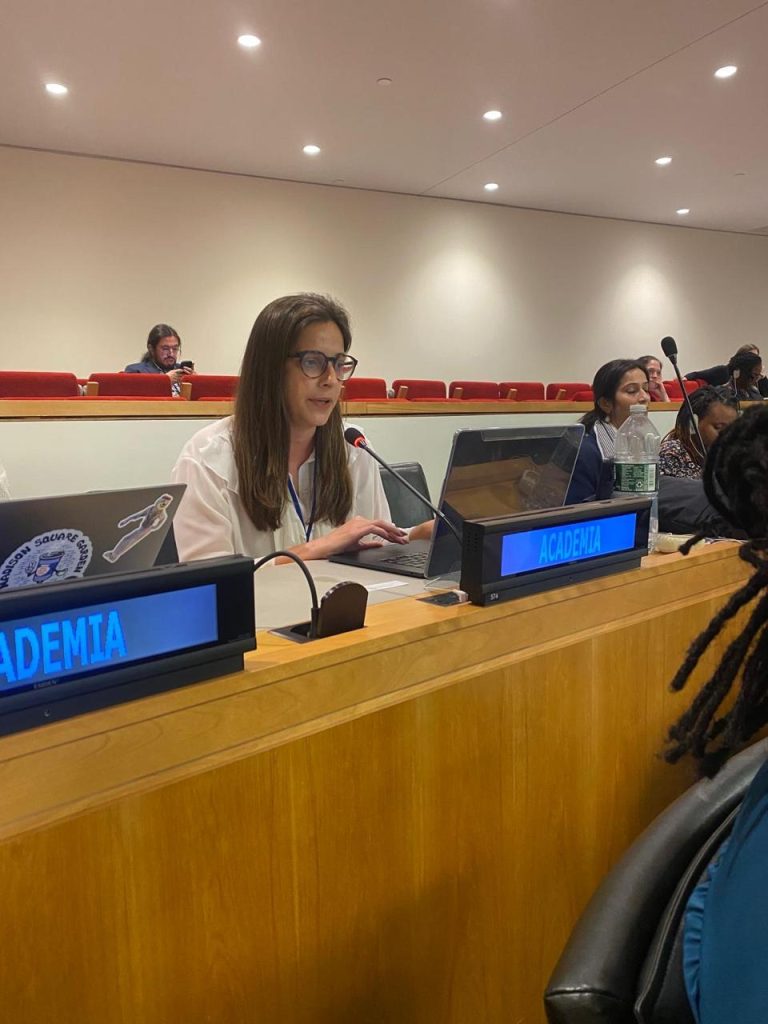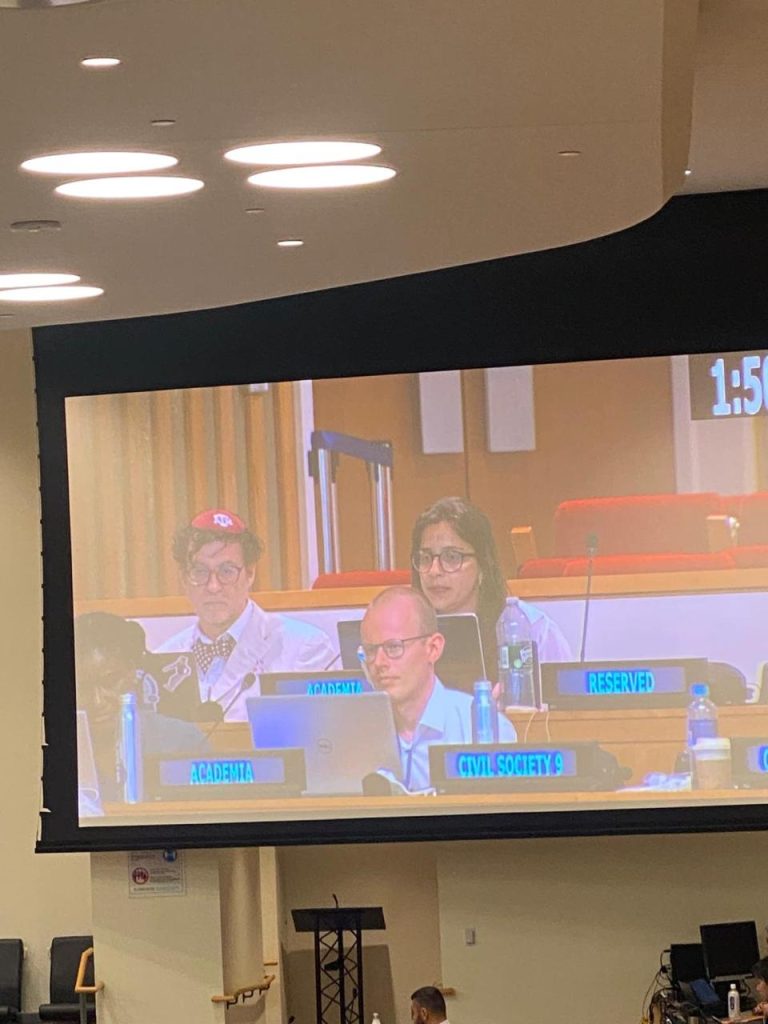August 3rd, 2024
The second session of negotiations on the Terms of Reference – ToR for a United Nations Framework Convention on International Tax Cooperation (UN FCITC) – began on 29 July. Following the first negotiating session, that took place from 26 April to 8 May 2024 at the United Nations headquarters in New York, which report can be accessed here, the Bureau’s revised the proposal for the Draft Terms of Reference for a UN FCITC, released on 19 July 2024 and can be consulted here.
So, since last Monday, delegations from the United Nations Member States, together with CSOs, academic institutions, the private sector, and other relevant stakeholders, have met again at the United Nations Headquarters in New York to discuss the ToRs of the multilateral agreement, that is being considered “a key opportunity to write the mandate for the proposed new global tax rules”.
The first meeting of the second session began with the opening remarks by Mr Junhua Li, which can be found here, followed by the general statements by each UN Member State, describing the focus of this Committee. Despite delegations expressing their desire to hold constructive debates and establish more inclusive, effective, and fair international tax cooperation, there was an evident “deep divide between the global north and the global south on issues related to the existing system of global tax governance” – as stated by the Jamaica’s representative. Overall, the representatives of the developed countries expressed their firm position that the aim of the ongoing work should not be to establish a new international tax system but rather to complement the existing one and, consequently, the future framework convention and protocols should not conflict with the existing work in other fora, a position endorsed by the USA, UK, Korea, and the EU block.
On the other hand, representatives of the developing economies expressed the urgent need for a Framework Convention dealing with cross-border tax issues, since many jurisdictions are not part of the OECD solutions – a point raised by nations such as Jamaica, Nigeria, India, Algeria, Kenya, and others. On this note, the Chair clarified that any UN work would not build on the work of other fora.
As the week went on, the divergence of positions between the two blocs remained in most of the topics discussed, with a few exceptions. With the “Global North” defending the principle of consensus in voting and concerns about privacy (Spain) and the promotion of trade and investment (Norway, Japan and Sweden), the “South” advocated for the express mention in the ToRs of Sustainable Development and the 2030 Agenda (Jamaica, Brazil and Colombia), the taxation of billionaires (Brazil), the insufficient mention to taxpayers’ rights (Saudi Arabia), the opposition to consensus in decision-making (Nigeria) and the work of other organisations should not be a concern for ongoing work (India).
The context of the expression ‘human rights’ included in the ToR principles was also discussed. Some delegations supported keeping it (Spain, Chile, Colombia) and others felt that the concept was too broad (Jamaica) and suggested replacing it with taxpayer rights, for example (India, Saudi Arabia).
The topics of significant disagreement between the delegations were on the commitments that the Member States should make at this stage of the negotiations, the number and content of the early Protocols, and the timetable for finalising the UN Framework Convention and the Protocols.
Specifically on the timeline, although the majority of delegations sitting on the OECD argued that two and a half years was not enough to finalise the Framework Convention and the Protocols properly, and that the latter should only begin to be negotiated after the framework convention is concluded, there seems to be room to find a common denominator between the positions of both blocks, depending on the number and complexity of the demands to be addressed by the protocols. Regarding the content of the protocols that should be prioritised, the UN Member States were substantially consistent with the taxation of the digitalized and globalized economy, income derived from the cross-border services, and the dispute resolution mechanisms.
From the above, the first week of discussions ended with a multi-stakeholder’s dialogue. While the OECD representative reinforced the progress made by the actions adopted within the organisation, mentioning the OECD Convention on Mutual Administrative Assistance in Tax Matters, CSO representatives drew attention to issues that deserve greater attention from the Ad Hoc Committee in drafting the final text of ToR, such as (i) environment taxes, (ii) the protection of human rights, with special mention to gender equality, women and children’s rights, (iii) the need for attention to tax transparency and illicit financial flows – IFFs and (iv) the importance of Protocols.
NOVA Tax Research Lab representative Mariana Beraldo explored the promotion of gender equality and the protection of women’s rights. Opening the statement, the researcher emphasised the importance of gender equality and the protection of women’s rights, to be expressly mentioned in the principles.
In this regard, Mariana argued that the universal struggle to promote gender equality has advanced significantly in recent decades with the adoption of more defensive legal frameworks. However, latent differences persist, which means that the road to achieving equality is still long and faces substantial obstacles. She explained that the wage gap, vertical inequality at work, and the concentration of women in informal jobs, often without access to benefits and decent working conditions, intensify this gender inequality.
NOVA Tax Research Lab representative pointed out that the existing tax models, even if unconsciously, penalise and intensify gender inequalities. However, how tax systems are designed is controllable, so governments can adopt policies to reduce inequality, for example, by conducting a gender analysis of public spending and the impact of taxation itself.
The UN Convention is, therefore, a unique opportunity to improve tax measures capable of guaranteeing women’s rights and reducing the gender inequalities that are still so pronounced, thus guaranteeing Sustainable Development.
The Ad Hoc Committee returns next Monday, 5 August, with the presentation and discussions of the revisions to the Draft ToR.
The meetings are broadcast on UNWebTV (live and archived video).
By Pedro Ferrão Marinheiro and Mariana Passos Beraldo



